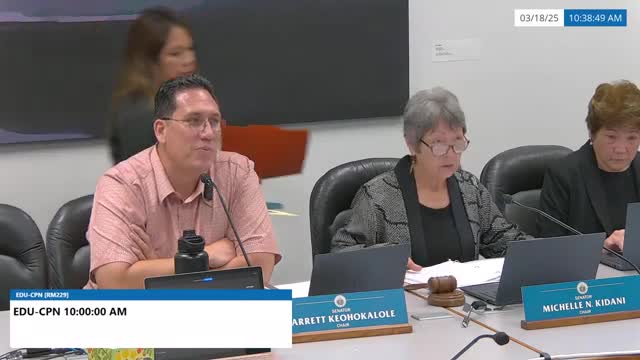Article not found
This article is no longer available. But don't worry—we've gathered other articles that discuss the same topic.
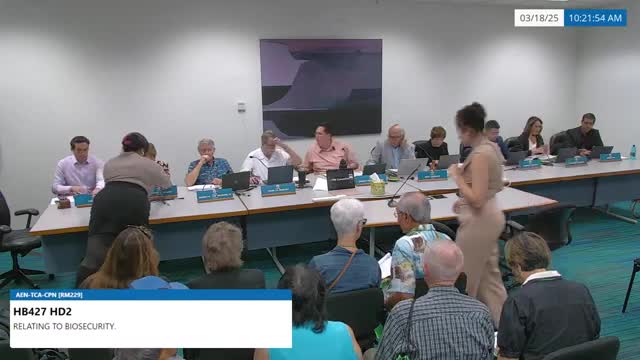
Senate committees rewrite HB 427 to fold in SB 1100: rename HDOA and add biosecurity authority, facilities, and funding requests
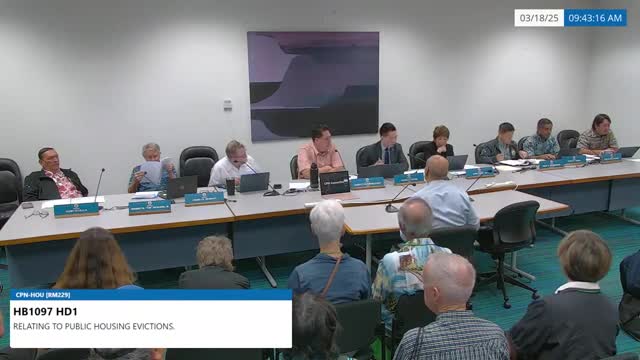
Senate committees adopt tenant-rights language for redevelopment projects after extended testimony from Kalihi tenants and advocates
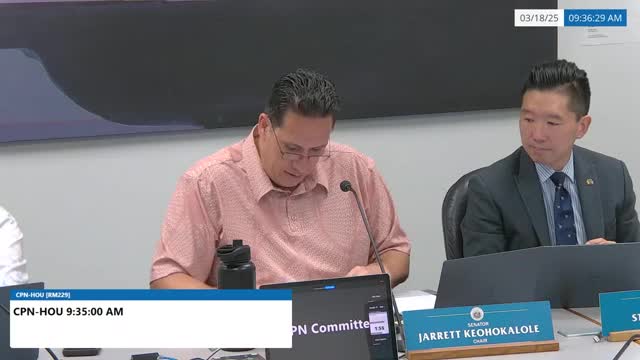
Senate committees back shorter storage period for public housing evictees; HPHA cites unit turnaround and lack of storage
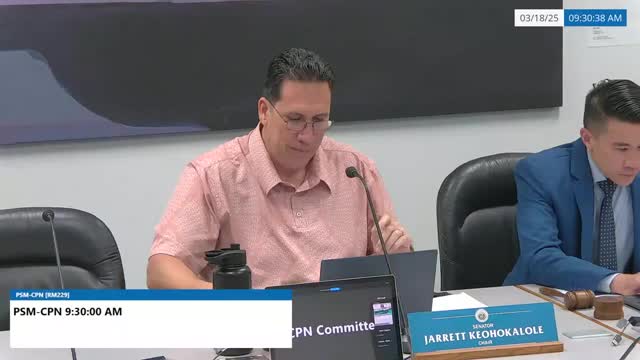
Senate committee advances bill allowing digital IDs with conditions, substitutes deadlines
